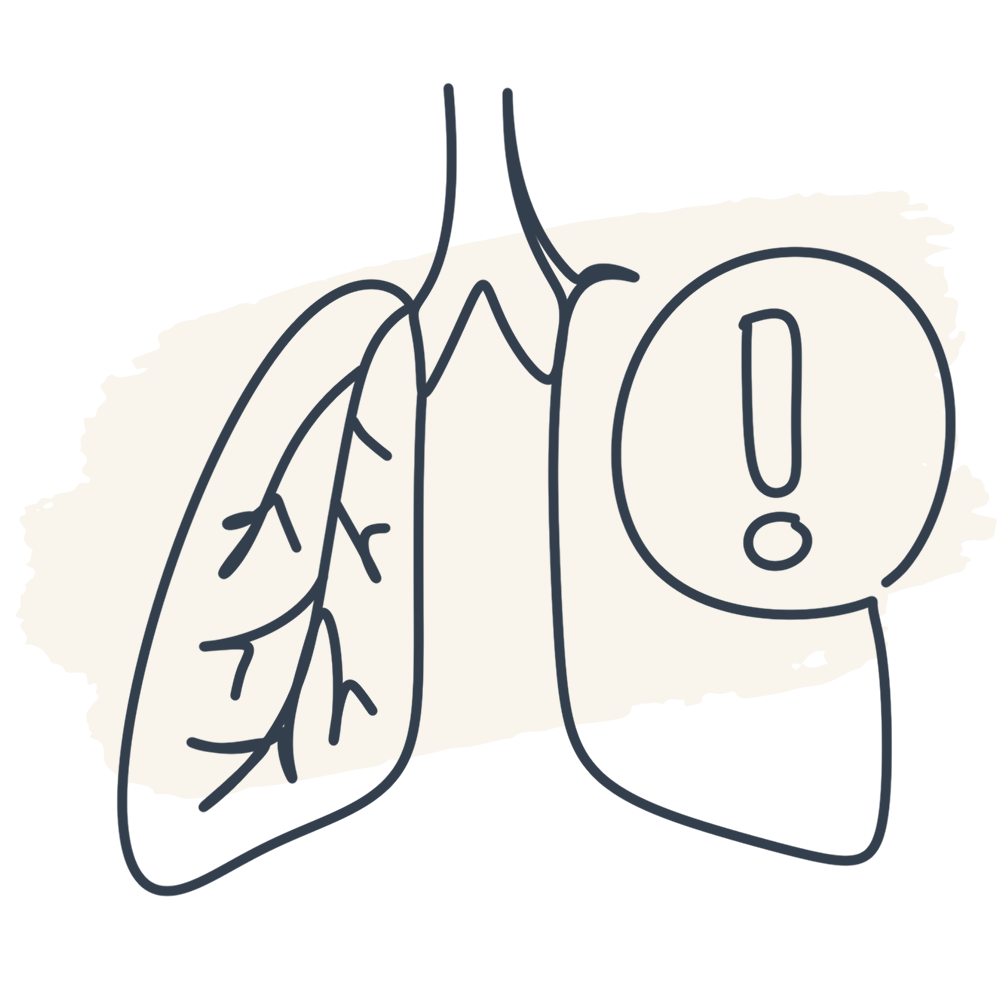Medically Reviewed by: Dr Jackie Gray, Public Health Expert and Retired GP
(Carents Trusted Reviewer Programme – Last reviewed July 2025)
People living with chronic obstructive pulmonary disease (COPD) are prone to developing stress, anxiety, and/or depression.
This is not surprising given the challenges of living with a progressive, long term lung condition.
However, these symptoms are often overlooked and under-treated because there is a tendency for everyone involved to focus on the physical aspects of the disease. Experts estimate that less than one-third of people with COPD and mental illness receive adequate treatment for their psychological issues.
Effective treatment for emotional or mental health problems can be very helpful for those living with COPD – it can improve quality of life and overall prognosis.
Mental Health Problems are Common in People Living with COPD
Studies suggest that around 40% of COPD patients could experience anxiety and/or depression. For those with anxiety, the symptoms can be extreme and linked to panic attacks. Panic attacks are thought to be around ten times more common in people with COPD than in the general population.
Emotional Problems Can Worsen the Prognosis for those Living with COPD
The emotional impact of COPD is significant, and mental health issues are associated with:
- being less able to cope with physical aspects of the illness
- poorer quality of life
- lower pulmonary function
- more frequent hospital admissions with longer lengths of stay,
- more difficulty following treatment plans.
Underdiagnosis and Treatment of Mental Health Problems is Common
Expert COPD treatment guidelines emphasise the importance of screening for, and managing any co-existing mental health problems, but audit reports indicate that this is uncommon. Reportedly, less than one-third of people with COPD and mental illness receive adequate treatment for psychological issues.
What Can You Do?
There is plenty of expert support available to those with COPD and related mental health problems. The important thing is to recognise the problem and encourage someone who is affected to seek help.
Explore mental health treatment options
You can help them ensure that their GP or specialist understands their problem and can advise on what treatment might be best.
There are multiple treatment options to consider, including:
-
- Pulmonary rehabilitation programme. This is proven to help with the mental health aspects of chronic lung disease.
- Talking therapies can also help especially with depression. Older people are less likely to seek help or be referred for talking therapy, but all of the evidence shows that they respond well and tend to get better results than younger age groups.
- Cognitive Behavioural Therapy can be a valuable intervention to help to treat and manage anxiety and panic attacks in those experiencing breathlessness
- Antidepressant medicines – in moderate or severe cases, these medicines can be helpful and worth discussing with a doctor.
- Social prescribing – using non-clinical methods, this aims to promote the health and well-being of patients by taking into account the broader social context of their lives.
Explore Social Prescribing for COPD
Social prescribing, also known as community referral, aims to promote health and wellbeing in a community setting, using non-clinical methods . It is a relatively new service that is currently being rolled out across GP practices across the NHS, and it is designed to provide practical support to patients whose everyday lives are limited by their long term conditions. It takes a holistic approach to care and is designed to help patients get involved in activities that could enhance their lives and become more actively involved in caring for their own health problems. It is widely considered to be especially useful for people who:
-
- need more support with their mental health
- have one or more long-term conditions
- are lonely or isolated
- have complex social needs that affect their wellbeing
Be Alert to the Emotional Effects of COPD
One of the best ways you can help is to recognise if emotional problems are developing and encouraging those affected to seek help.
Helping someone with COPD seek help for their mental health problems will ensure that they do not continue to suffer unnecessarily. The potential benefits are significant extending beyond their emotional wellbeing to improve their general physical health and the prognosis of their COPD as well.
Unlock your free COPD Toolkit
Managing Chronic Obstructive Pulmonary Disease (COPD) can be challenging, both for those affected and for the carents who support them. At Carents, we understand the complexities involved in caring for someone with COPD. That’s why we’ve compiled our most valuable resources into a comprehensive COPD Support Toolkit, designed to provide practical advice and information to help you navigate this journey
Simply complete the form and the toolkit will be sent to you via email.
WHAT OUR CARENTS SAY
Medically reviewed by Dr Jackie Gray, July 2025
